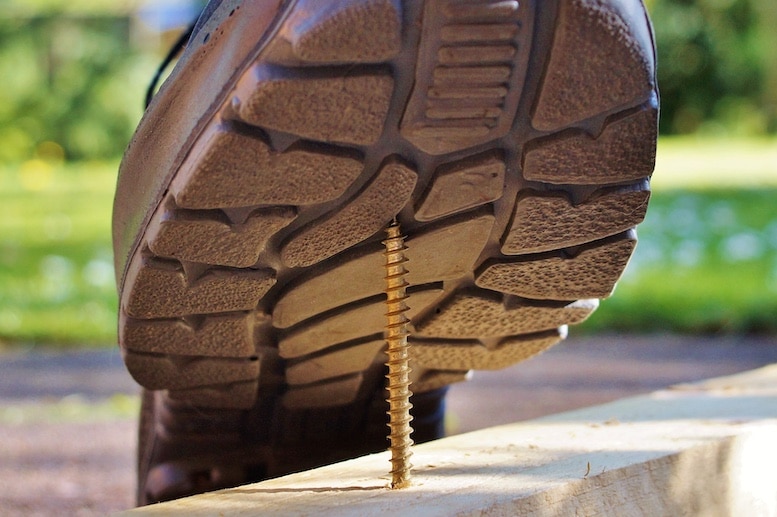Delayed Car Accident Symptoms?
You may feel fine after a car accident, but that doesn’t mean you’re not injured.
While certain injuries are obvious right away, others can take days or weeks to appear.
Don’t ignore any aches, pains, or unusual health changes in the weeks following an accident. These delayed car accident symptoms may indicate serious issues requiring medical attention.
This article outlines delayed injury symptoms to watch for after a car accident in Austin, TX, and offers advice on seeking medical care and compensation if you’re injured in a crash.
Let’s get started!
What Signs Should You Look For?
Below are six common symptoms related to delayed injuries. Taking these symptoms seriously and seeking prompt medical attention can protect your health and help you build a strong case if you decide to pursue legal action.
Headaches
Collision-related headaches can develop immediately after an accident or take hours, or even days, to appear. During a car accident, your head may hit the car’s interior, causing trauma to your neck and head. The force of the collision can also cause your brain to move within your skull, resulting in a traumatic brain injury.
Even mild headaches can signal underlying injuries, so don’t wait for the symptoms to worsen. Your well-being should always be your top priority after an accident.
Neck Pain
Whiplash occurs when the head is suddenly jerked back and forth, straining the neck and back muscles and tissues. This injury is common in car accidents, where sudden stops cause the body’s momentum to move forward while the head snaps backward.
In addition to whiplash, neck pain after a car accident can indicate other soft tissue injuries. Muscle strains or sprains can occur when the muscles in the neck and back stretch or tear during a sudden movement. These injuries can cause pain, discomfort, stiffness, and a reduced range of motion.
Symptoms may not appear immediately, but stiffness or reduced neck motion indicates the need for medical attention. Ignoring these symptoms can lead to long-term damage or chronic pain.
Abdominal Pain
The force of a car accident can cause blunt trauma to the abdomen, which can be life-threatening if not treated promptly. Abdominal pain or swelling after an accident is a medical emergency requiring immediate action, especially if you notice symptoms like dizziness, fainting, headaches, or bruising.
Internal bleeding may not always be visible, and delaying treatment can lead to severe complications or death. Call 911 or go to the emergency room if you experience symptoms. Early diagnosis and treatment can significantly improve your recovery and overall health.
Back Pain
The impact of a collision can put pressure on the spine, causing various back injuries ranging from mild to severe. Lower back pain is particularly common after a motor vehicle accident and can indicate soft tissue injuries like herniated discs. Specific sensations in the back may include a dull ache, sharp pain, stiffness, and limited range of motion.
Your doctor may recommend imaging tests like X-rays or MRIs to determine the extent of your injury and develop an appropriate treatment plan.
Numbness and Tingling
Spinal cord damage, herniated discs, and nerve damage can cause numbness, tingling, or loss of feeling in the affected area. These symptoms can be precursors to paralysis or other long-term neurological damage, so do not take them lightly!
Any neurological symptoms after head, neck, or back injuries should be treated as an emergency. Since these injuries are common after a wreck, an ER visit or 911 call is warranted if you experience numbness or tingling in the days following an accident.
Behavioral or Emotional Changes
Changes in behavior or emotions after an auto accident can be signs of both physical and psychological damage. Brain injuries can affect mood, behavior, and cognitive function, leading to frustration, irritability, mood swings, and difficulty concentrating or remembering things.
Psychological trauma from a car accident can also cause behavioral or emotional changes. PTSD is a common mental health disorder that can develop after a traumatic event, leading to anxiety, depression, chronic pain, and gastrointestinal disorders.
These symptoms can disrupt daily life and may not go away without professional intervention.
How Do You Prove an Injury With Delayed Symptoms?
The attorneys at Funk and Associates can guide you in proving your injury from delayed symptoms after a car accident. Here’s how to build a strong case:
Seek Immediate Medical Attention
As soon as you notice any symptoms, seek medical care immediately, even if those symptoms appear days or weeks after the accident. Prompt medical attention is crucial for your health and for documenting your injuries.
Establish a Link Between the Accident and Symptoms
Your legal team will need to connect your symptoms to the accident. This involves gathering and presenting evidence such as:
- Medical Records: Detailed documentation from healthcare providers showing your diagnosis and treatment.
- Expert Testimony: Medical experts can explain how the accident likely caused your injuries.
- Other Evidence: Any additional documentation or witness statements that support your case. This works for the “other side” as well, so don’t talk about your case on social media! Personal injury surveillance is a real thing in Texas!
Understand the Legal Timeline
In Texas, you generally have two years from the date of the accident to file a claim for compensation. However, this timeline can vary based on specific circumstances. Consult with a car accident lawyer as soon as you discover your injuries to avoid missing the opportunity to recover your losses.
Work With a Trustworthy Legal Team
Proving the extent of delayed injury symptoms can be challenging. A competent legal team, like the attorneys at Funk and Associates, can help navigate the complexities of your case and ensure you have the best chance at receiving the compensation you deserve.
Since 2001, Funk and Associates has won compensation for thousands of accident victims and recovered well-deserved damages for real people like you. We serve these areas around Austin:
- Cedar Park
- Lakeway
- Brushy Creek
- Round Rock
- Pflugerville
- Leander
- Shady Hollow
- Wells Branch
The practice areas we focus on include:
- 18-Wheeler Accidents
- Car Accidents
- Motorcycle Accidents
- Wrongful Death
- Traumatic Brain Injury
- Product Liability
By following these steps and working with experienced attorneys, you can effectively prove your injury with delayed symptoms and secure the compensation needed for your recovery. If you have been injured in an accident in Austin, TX, contact us for a free, no-obligation consultation at 512-472-3865.



